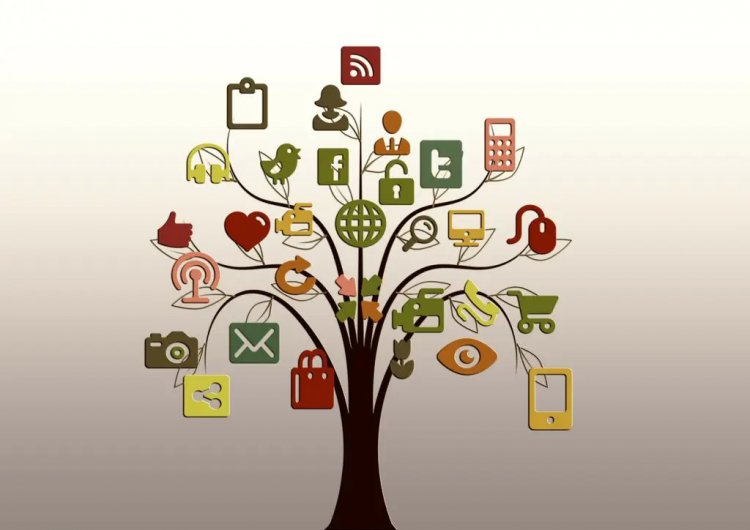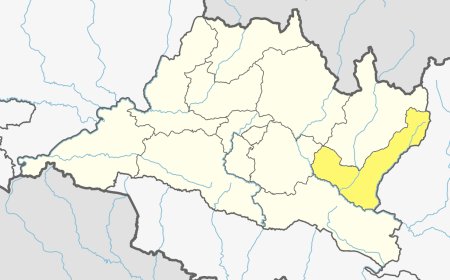Social media in Nepali business
Discover the pros and cons of using social media for Nepali businesses. Learn how it can help grow your business, but also the risks involved. Make an informed decision today
Social media has become a blessing in every sector and country in the 21st century. It is the backbone of every business, not only in Nepal but across the globe. Our lives have become more convenient, comfortable, and fast-paced due to social media, and it is impossible to imagine life without it.
When it comes to social media in business, facilitates real-time communication with customers and the sharing of information. Additionally, social media can help businesses enhance their customer outreach, establish an online network, and promote and sell products and services through online platforms.
Selecting appropriate social media platforms that cater to the target audience can save valuable time and effort for businesses. Therefore, here are a few social media platforms that can be leveraged for business purposes:
-
Social networking sites:
Social networking sites are online platforms that enable users to create public profiles and engage with other users. These sites facilitate the creation of personal profiles or pages, networking with others, and sharing information, including promotions, images, and videos. Establishing a business profile on social networking sites can aid in attracting followers, acquiring new customers, and building a brand. Examples of social networking sites include Facebook, Pinterest, and Instagram.
-
Job networking sites:
These sites offer an online platform for professionals to engage with each other, join groups, post blogs, and share information. Job networking sites like LinkedIn enable individuals to build a professional business profile and connect with networks of skilled people for recruitment and development purposes.
-
Blogs:
Blogs are digital diaries where individuals can express their thoughts, observations, promotions, links, images, and videos. Typically, blogs are public and allow readers to interact with the author through comments. Blogs can be hosted in-house or through a blogging platform that offers software and website hosting. Some examples of free blogging tools include Blogger and WordPress.
-
Video sharing sites:
These sites provide a platform for individuals and businesses to share content, promote products or services, and connect with audiences through video. Examples of video-sharing sites include YouTube, Vimeo, and Dailymotion.
-
Private social network service:
Private social network services enable individuals to share information within a private network, which can be advantageous for businesses seeking to establish a secure organization-only network for sharing knowledge. Yammer is an example of a private social network service.
Nepali businesses are leveraging various types of social media content, such as podcasts, social news communities, and location-based services, to enhance their operations.
Here are some of the roles played by social media in Nepali business:
-
Marketing and promotion:
Nepali businesses use social media sites like Facebook, Instagram, and Twitter to show their products to more people. They can make ads, post pictures and videos of their products, and talk to potential customers on social media.
-
Customer engagement:
Nepali businesses are using social media to talk to their customers and help them. They can answer questions, fix problems, and tell customers about new things they have for sale.
-
Sales:
Many Nepali businesses sell their products on Facebook, TikTok, Instagram, and other social media sites. They put up pictures of what they have and let customers buy them right there on the site.
Here are some of the advantages that social media offers to Nepali businesses:
-
Increase market reach, including international markets:
Social media offers businesses a platform to expand their market reach, including globally, by creating content that resonates with a broader audience. It also facilitates engagement with international markets through cross-cultural communication, fosters relationships, and enhances brand awareness.
-
Develop brand:
Social media enables businesses to engage with customers in real-time, improving customer engagement and building customer loyalty, which can help establish a strong brand identity. It can also provide an opportunity for businesses to develop and strengthen their brand identity through consistent messaging, increased brand awareness, visual branding, customer engagement, user-generated content, and influencer marketing.
-
Exchange ideas to improve the way to do business:
Social media allows businesses to connect with other professionals and potential partners, leading to new ideas, collaborations, and partnerships. It also enables online collaboration among employees, partners, and stakeholders, enhancing communication, increasing productivity, and streamlining business processes.
-
Keep an eye on competitors:
Social media enables businesses to monitor their competitors' social media activity, including the content they post, the frequency of their posts, and the engagement they receive from their followers. It also provides an opportunity to learn from competitors' successes and failures, which can help businesses, adjust their social media strategies and improve their performance.
-
Customer insights:
Social media analytics provide businesses with valuable insights into customer behavior and preferences, enabling them to tailor products and services to meet customer needs.
Like everything else, social media has its advantages and disadvantages. In the context of Nepali business, some of the drawbacks of social media are:
-
Distraction:
As everyone has become fond of social media nowadays, it can lead to distraction among employees and make them less productive. This distraction can also lead to lower-quality work and missed deadlines, which can ultimately harm the overall performance of a business.
-
Negative feedback:
In the world of social media, customers have the power to share their opinions and experiences with a vast audience. While this can be beneficial for businesses with good products and services, it can be detrimental for those with poor-quality offerings.
-
Misinformation:
With the ease and speed at which information can be shared on social media platforms, false information can quickly become viral and spread rapidly among the audience. This can have negative consequences for a business, such as a damaged reputation, the loss of customers, or decreased sales.
-
Time-consuming:
Managing social media effectively can be a time-consuming task for businesses, as it requires dedicated resources to develop and implement a social media strategy, create content, and engage with customers. This can divert valuable time and resources away from other business operations, which can impact productivity and profitability.
-
Security concerns:
Social media platforms are not immune to cyber threats and data breaches. They can be vulnerable to various security risks, including hacking, phishing, and malware attacks. If a cyberattack or data breach occurs, it can result in the theft of sensitive business and customer data, reputational damage, and financial loss.
Social media has become an essential tool for Nepali businesses to promote their products and services, connect with customers, and build their brands. With the use of social media platforms such as Facebook, Instagram, Tiktok, and Twitter, businesses can reach a wider audience, engage with customers, provide customer support, and even sell their products directly. With the advancement of technology, it is evident that social media will keep playing a more significant role in Nepali business, providing new opportunities for growth and success.
What's Your Reaction?







































































































